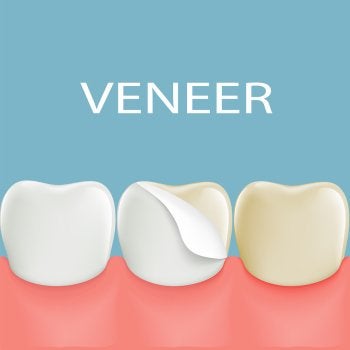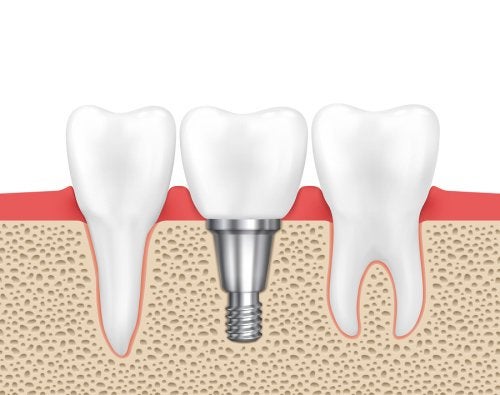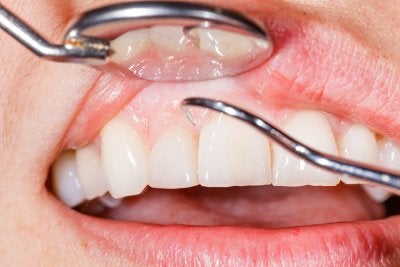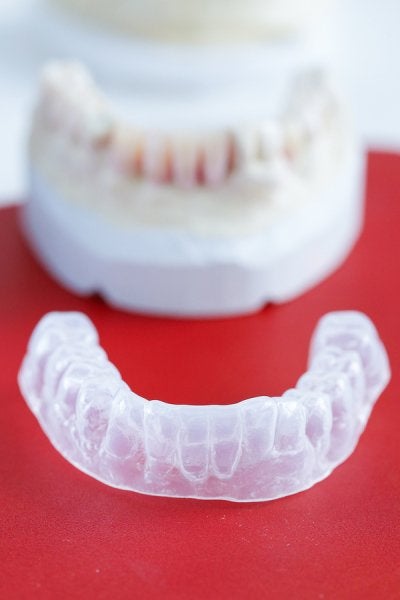-
Comparing Porcelain Veneers and Lumineers
There are so many dental treatments available in modern society that it can be easy to mix some of them up. This is especially true for treatments like porcelain veneers and dental Lumineers in Bel Air, MD, which have a number of elements in common. However, they are not identical treatments and are each more appropriate in certain situations. If you want to decide which of these cosmetic dentistry treatments is right for you, be sure to do some research and talk to your dentist. If you are interested in comparing porcelain veneers and Lumineers, read ahead.

Similarities
From implants and implant-supported bridges to dental bridges and composite fillings, many different types of cosmetic dentistry procedures share a wealth of similarities. However, porcelain veneers and dental Lumineers tend to be particularly easy to confuse. Both of these types of treatments are made with porcelain materials, and they both seek to cover parts of your teeth for a better aesthetic appearance. Veneers and Lumineers can both be used to cover cracks, gaps, and chips as well as stains and discoloration; some patients even use these treatments specifically for cosmetic purposes.
Differences
Although porcelain veneers and dental Lumineers are made from similar materials and designed to treat similar conditions, they are not exactly the same. While porcelain veneers are thin shells for the teeth, dental Lumineers are even thinner. As such, Lumineers are typically used to deal with more minor imperfections than substantial changes. They also require the removal of a smaller portion of the tooth than porcelain veneers. Depending on the thickness of the tooth and the nature of the problem you’d like to correct, one treatment may be more appropriate than the other.
Which Is Right for You
It’s always a good idea to do some research when you are thinking about undergoing a certain type of procedure, but it’s important to talk with your dentist. Make an appointment with your dental office so your dental health professional can perform an evaluation. Porcelain veneers tend to be more applicable to those with more obvious problems, while Lumineers lend themselves to those with thinner teeth.
-
What Are the Signs of a Tooth Abscess?
A tooth abscess can be a very painful condition. In this video, a dental care practitioner will explain some of the common signs and symptoms of an abscessed tooth. When you have an abscess, you may find that your tooth is very sensitive to hot or cold foods. You may also feel a dull, aching pain that throbs in your mouth. A dentist at a general dentistry office in Bel Air will be able to check your tooth for the signs of an abscess.
In the event that you experience an abscess in your tooth, you will want to visit your local dental office right away. With dental care services, you will be able to alleviate your pain and restore your tooth to perfect health. Your dentist will have the tools needed to remove the abscess and improve your overall comfort.
-
The Aesthetic Benefits of Dental Implants
If you have a chipped, broken, or missing tooth, you will want to make an appointment at a cosmetic dentistry office right away. An office that specializes in cosmetic dentistry in Bel Air will be able to provide you with beautiful dental implants that will completely transform your smile. Like porcelain veneers and dental bridges, dental implants are used to replace or restore teeth that have become lost or damaged. There are several aesthetic benefits that dental implants have to offer you.
With a new dental implant, you will enjoy a natural looking smile. Rather than having to hide your missing or broken tooth, you will be able to smile with total confidence. Dental implants also have the advantage of being matched to your natural tooth shape and color. After your procedure has been completed, it will be nearly impossible to tell the difference between your implant and your natural teeth.

-
Helping Your Kids Avoid Cavities
As a parent, it is important to teach your children proper oral health habits and hygiene. While cavities may be an unavoidable problem for some families, there are steps that you can take to help prevent a dental cavity in your child’s smile. A kid’s dentist in Bel Air will be able to gently clean your child’s teeth and check for the early signs of decay. Your pediatric dentist can also instruct your son or daughter on proper brushing and flossing techniques. To help you avoid the stress of a dental cavity, here is a look at some tips for helping your kids avoid tooth decay.

Brush and Floss Regularly
One of the most effective measures for preventing tooth decay is to encourage your children to brush and floss their teeth regularly. For optimum oral health, your child will need to brush and floss at least twice a day. Young children should be supervised throughout the brushing process. To help prevent cavities, you can also make sure that your kids use toothpaste that contains fluoride.
Eat Nutritious Food
Your child’s diet has a strong correlation with his or her oral health. Very sugary foods, such as candy or soft drinks, will cause harmful bacteria and plaque to build up in your child’s mouth. Over time, a sugar filled diet can cause cavities and other oral health issues. To ensure the proper oral health of your child, you will want to encourage him or her to eat a healthy diet that is filled with fruits, vegetables, and whole grains.
Schedule Dental Visits
Regular trips to the dentist will keep your child’s teeth in great condition. Children of all ages should visit the dentist at least once every six months. The twice yearly dental exam will allow your kids dentist to perform a thorough cleaning and check for any early signs of decay. During your regularly scheduled dentist appointments, your dentist can also make sure that your child is brushing and flossing correctly.
-
How Diabetes Can Affect Your Oral Health
Diabetes is a medical condition that can affect all of the major systems of the body. If you have diabetes, you may be surprised to learn that your oral health can also be affected by this disease. Fortunately, with services and care from a general dentistry office in Bel Air , you will be able to make sure that your teeth and gums remain healthy and strong. Your dental office can assist you with tooth filling, general cleanings, and a variety of other important dental care services. To help you care for your teeth, here is a look at how diabetes can affect your oral health.

Gum Disease
People with diabetes are more likely to develop gum disease than non-diabetics. Gum disease occurs in stages, and can be reversed if it is detected early. The beginning stage of gum disease is known as gingivitis. As gum disease progresses, puffy, red gums may start to bleed and recede. Advanced gum disease may result in tooth loss, abscesses, and other very serious issues.
Tooth Loss
Diabetic patients may also find that they are at increased risk of experiencing tooth loss. There are many reasons why a person may lose a tooth in adulthood. A tooth may need to be extracted if it is severely decayed or infected. Problems with the gum surrounding the tooth may also result in tooth loss. Fortunately, cosmetic dentistry procedures can be used to fill in the space left by a missing tooth and restore a patient’s smile.
Dry Mouth
Dry mouth is another oral health problem that is associated with diabetes. When a patient has a frequently dry mouth, he or she may develop ulcers, sores, and frequent cavities. Dry mouth is also a very uncomfortable condition. With services from a dentist in your area, you can prevent and treat any of the oral health issues that are associated with diabetes. Your dentist can keep your smile healthy and brilliant throughout your lifetime.
-
Are Sports Drinks Safe for Your Smile?
Sports drinks might seem like a healthy choice, perhaps because they are marketed toward fitness enthusiasts. However, pediatric dentists in Bel Air, MD, warn parents that sports drinks can actually be just as harmful for teeth as soda. They can increase the risk of dental cavities, which require tooth fillings to correct. One way that sports drinks are harmful for teeth is the amount of sugar. The bacteria in the mouth thrive in sugary environments. As the bacteria feast on sugar, they produce acids as a byproduct. These acids wear away the enamel on the teeth and create dental cavities.
Some sports drinks might seem to be healthier for teeth because they are sugar-free. But in fact, even sugar-free drinks can wear away as much enamel as sugary beverages can. This is because these beverages tend to contain phosphoric acid, citric acid, and tartaric acid. The acidic nature of these beverages has a corrosive effect on the teeth. Instead of sports drinks, pediatric dentists recommend drinking milk or water.

-
Talking to Your Dentist About Gum Disease Treatment
Gum disease, also known as periodontal disease, is one of the most common causes of tooth loss. Proper dental care can often prevent gum disease, but if you already have it, you may need specialized dental care in a dental office in Bel Air, MD. Undergoing an intensive dental cleaning may reverse the disease, provided you follow your dentist’s recommendations for at-home dental care .

Discuss Your Medical History
When you arrive at the dental office, you can expect to be asked about your medical history. You might consider asking your dentist how he or she thinks you developed gum disease. Some common risk factors of periodontal disease include diabetes, poor nutrition, poor oral care habits, tobacco use, and decreased immune function. Not all of these risk factors can be eliminated, but lifestyle changes can improve others. Consider asking your dentist to evaluate your typical brushing and flossing techniques, and give you some pointers if your routine could use improvement.
Learn About the Recommended Treatment
The treatment options your dentist recommends will depend on how far the disease has progressed. The early stage of gum disease is gingivitis. If you have gingivitis, your dentist might recommend one or two professional dental cleanings. You’ll also need a follow-up visit to make sure your gums are healing. If your dentist recommends this method, be sure to ask how often you should schedule routine dentist visits in the future. If your periodontal disease is more advanced, your dentist may recommend scaling and root planing. This is a deep cleaning method that scrapes away tartar, plaque, and toxins from below and above the gum line. The root surfaces are then smoothed. If your dentist recommends this option, consider asking how else you can support your oral health. Your dentist may prescribe medications, recommend medicated mouthwash, or advise you to switch to an electric toothbrush.
Ask About Maintenance
Whichever treatment option your dentist recommends, be sure to ask him or her about the maintenance phase. Maintaining your oral health is crucial to prevent a recurrence of gum disease. Your dentist may recommend that you return to routine dental cleanings four times per year instead of the usual two visits. During these visits, the dentist will check your gums to make sure they are still healthy.
-
How to Choose Which Cosmetic Dentistry Treatment Is Right for You
Your smile says a lot about your personality. Unfortunately, many people feel as though they must cover up their smiles because of concerns about the appearance of their teeth. If you’re dissatisfied with your smile, it may be time to make an appointment at a cosmetic dentistry office in Bel Air, MD. There are many cosmetic dentistry options that can brighten your smile, resolve chips and cracks, and even address misshapen teeth and unsightly gaps.

Identify your concerns and goals for your smile.
Consider making a list of all of the things that bother you about your smile. You might be upset that your teeth look dingy or downright discolored, or you may be concerned about that gap between your front teeth. Consider which changes to your smile would give you a boost of self-confidence.
Schedule a consultation with a cosmetic dentist.
Once you have identified the problem areas that you would like to resolve, it’s time to schedule a consultation with a cosmetic dentistry provider. When you arrive at the clinic, be sure to share your full medical history, including any medications you’re taking. This is particularly important if you’re concerned about discoloration; certain medications are a common cause of tooth discoloration. During your visit, your dentist will carefully examine your teeth, including the way the upper and lower jaws fit together. He or she will ask you about your goals for your pearly whites and then design a customized treatment plan that’s right for you.
Learn about your cosmetic dentistry options.
Many people can achieve incredible results with tooth whitening alone. In office whitening procedures are particularly effective. The BriteSmile method is particularly effective. It involves applying specialized teeth whitening gel to your teeth. Then, the BriteSmile blue light is applied to activate the gel. During your treatment, you can relax comfortably while your teeth are undergoing a much-needed makeover. If you have deeper tooth discoloration, such as discoloration caused by medications, then you might need a more intensive treatment. Your dentist might recommend Lumineers, which are porcelain veneers that are bonded to the front sides of your teeth. Lumineers are an effective way to instantly camouflage a wide range of dental imperfections-from discoloration and chips to gaps and misshapen teeth. These are just a couple of the cosmetic dentistry options that may be available to you. Your dentist can help you decide which one is right for you.
-
Tips for Caring for Your Sensitive Teeth
If you have sensitive teeth, you may find it uncomfortable to consume very hot or cold beverages and foods. Since tooth sensitivity can indicate the wearing down of your enamel or the recession of your gum line, it’s best to visit a dental office in Bel Air, MD, for a dental cleaning and exam. Proper dental care can resolve your tooth sensitivity by addressing the underlying problem. In the meantime, you can follow the tips explained in this video.
This video offers some at-home dental care guidance for sensitive teeth. It recommends brushing your teeth with a soft-bristled toothbrush and desensitizing toothpaste that contains fluoride. You can protect the enamel on your teeth by avoiding soda and acidic foods, and by waiting 30 minutes after eating before brushing your teeth.
-
Why Adults Are Choosing Invisalign
Braces have long been used to straighten the teeth of adolescents, but individuals of any age can benefit from having perfectly aligned teeth. Properly aligned teeth are essential for biting and chewing food, and for clearly pronouncing words. In some cases, braces might even improve oral wellness, such as when an adult suffers from temporomandibular joint (TMJ) disorder. For adults who live in Bel Air, a dentist is likely to recommend Invisalign.

Discreet Alternative
Dentists often recommend Invisalign to their adult patients because it offers a discreet alternative to highly visible metal braces. Although straight teeth are important at any age, the appearance of braces does not lend itself to a professional image. Adults who are concerned about how they look as they go about their day at the office may be more likely to choose Invisalign. Instead of metal brackets, Invisalign gently straightens the teeth with a series of custom-made aligners made of clear plastic . Since these aligners are virtually invisible, no one needs to know when a person is having his or her teeth straightened.
Convenient Aligners
Beyond appearance, Invisalign offers remarkable advantages over metal braces. The aligners are a convenient option because they are easily removable and replaceable. Dental patients simply pop out the aligners when it’s time for a meal. After eating and brushing their teeth, patients can easily snap the aligners back into place. The removable nature of the Invisalign aligners means that there are no dietary restrictions; patients can feel free to crunch on an apple, bite on celery, or chew sugarless gum.
Optimum Oral Health
Another benefit of the removable aligners is that they allow patients to maintain their normal oral health routines without having to fuss with proxabrushes or other special dental care equipment. The teeth can be brushed and flossed as usual. The aligners are easy to clean; a gentle scrub with toothpaste is all that’s needed to refresh them. Because adults can easily maintain their oral hygiene during treatment, there is no increased risk of tooth decay.
RECENT POSTS
categories
- Uncategorized
- General Dentistry
- Toothache
- Emergency Dentistry
- Family Dentistry
- Receding Gums
- Cosmetic Dentistry
- Veneers
- Gum Disease
- Gingivitis
- Dental Crowns
- Orthodontics
- Dental Implants
- Root Canal
- Wisdom Teeth
- Teeth Whitening
- Your Smile
- Composite Fillings
- Lumineers
- Dentures
- Invisalign
- BrightSmile
- Dental Bridge
- Abscessed Tooth
- Sealants
